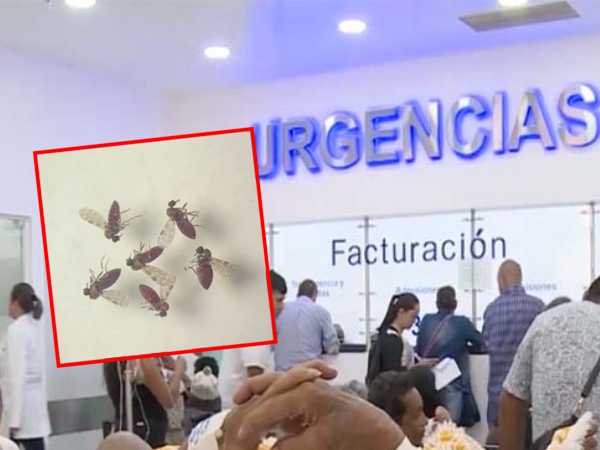They have reported cases in places where it is “rare to find it.” They called for measures to be implemented to mitigate the spread.
News Colombia.
Colombia is currently under epidemiological alert due to the outbreak of the Oropouche virus that It circulates mainly in jungle or forest regionsbut which has shown a worrying increase in confirmed cases in various regions of the country.
Read also:
But it is also affecting other countries. According to the Pan American Health Organization (PAHO), as of August 1, a total of 8,078 cases have been recorded in the region, with a notable concentration in Brazil, Bolivia, Peru, Cuba and, of course, Colombia.
Colombia’s National Health Institute (INS) has confirmed 87 cases of the Oropouche virus in several departments. Amazonas is the most affected, followed by Caquetá and Meta, places where it is “rare to find it.” This increase has led authorities to intensify surveillance and control measures to mitigate the spread of the virus.
He @INSColombia reports that this year 87 cases of the oropouche virus have been identified in 1,279 dengue samples analyzed. Two of them were in pregnant women, with no affectation to their babies. 94.6% of the cases are from the Amazon. pic.twitter.com/hsCvPdhhzy
— Ronny Suarez Celemín (@RonnySuarez_) August 6, 2024
What is the Oropouche Virus?
Oropouche virus is a vector-borne pathogen, primarily transmitted by the bite of the sandfly (Culicoides paraensis) and the Culex quinquefasciatus mosquito. Symptoms of the virus are similar to those of dengue fever and include fever, headache, joint stiffness, muscle aches, and malaise. In addition, some patients may experience photophobia, diplopia, persistent nausea and vomiting.
#Health | The National Institute of Health announced that it is maintaining strict surveillance of the Oropouche virus (OROV) due to the 87 official cases reported in the country. The entity revealed that so far in 2024, it has processed 1,279 samples of febrile dengue illness until…
— La FM (@lafm) August 6, 2024
preventive measures
Health authorities are implementing various measures to control the outbreak and prevent the spread of the virus. Recommendations include protecting homes with fine-mesh mosquito nets on doors and windows, using mosquito nets on beds and sleeping areas, and wearing clothing that covers legs and arms, especially in homes where there are sick people.
It is crucial to use repellents to prevent bites, as midges are significantly smaller than common mosquitoes and can penetrate less fine mosquito nets. Applying repellents is therefore an essential measure to reduce the risk of infection.
You can also read:


















